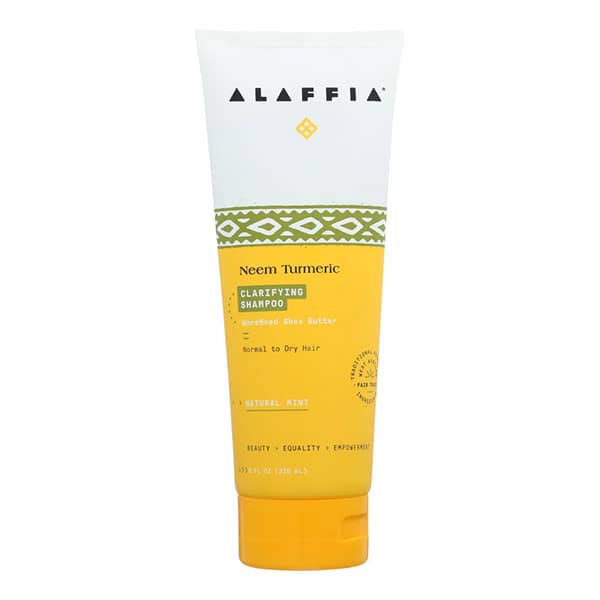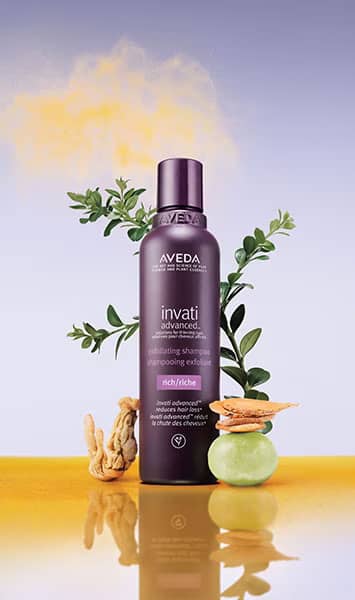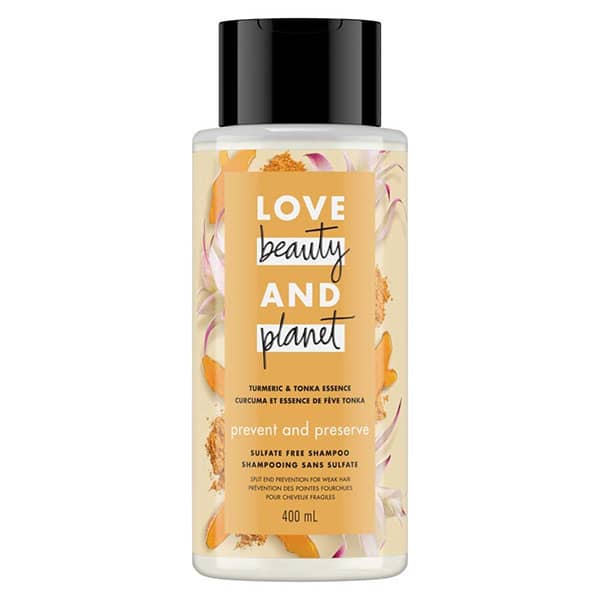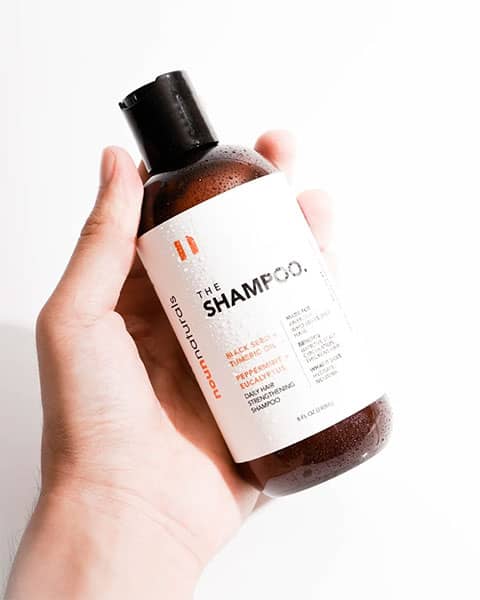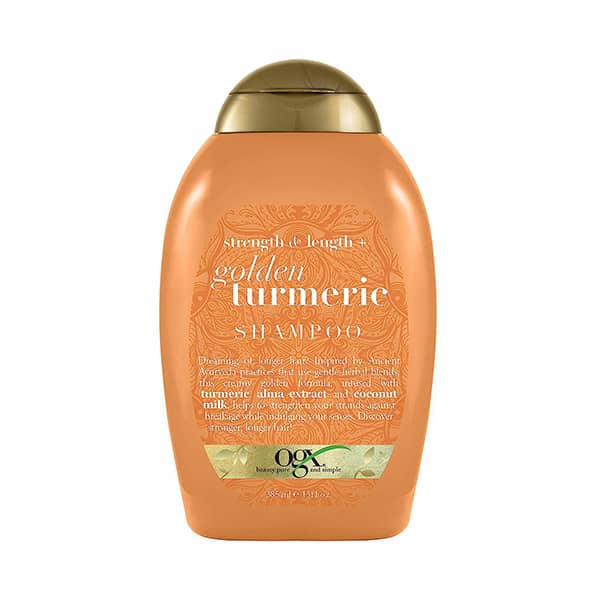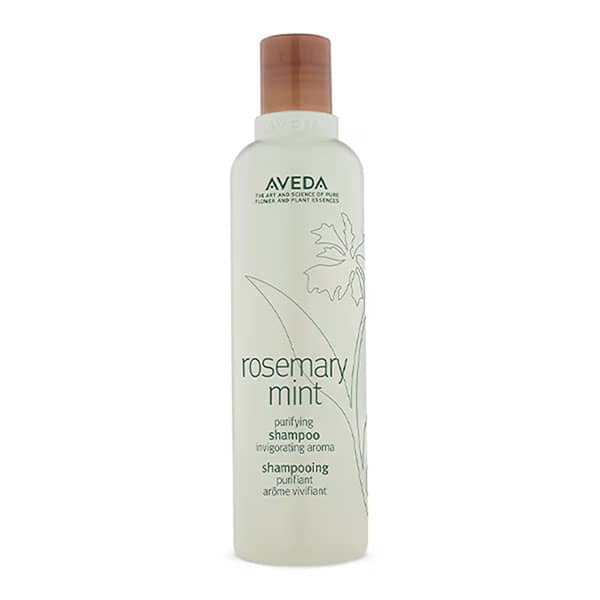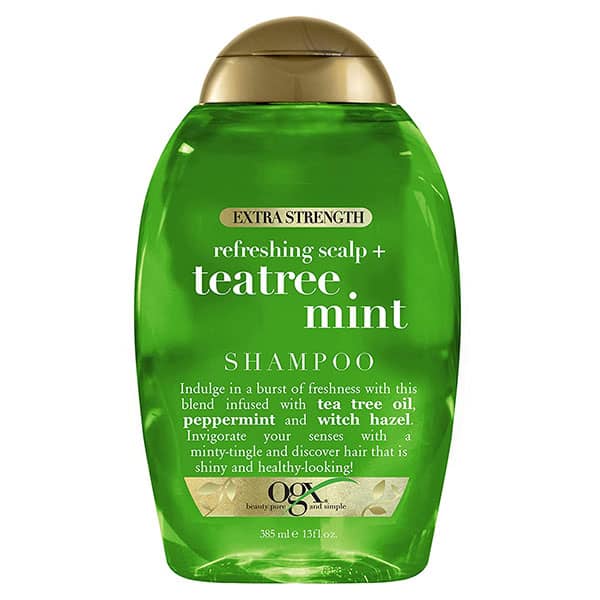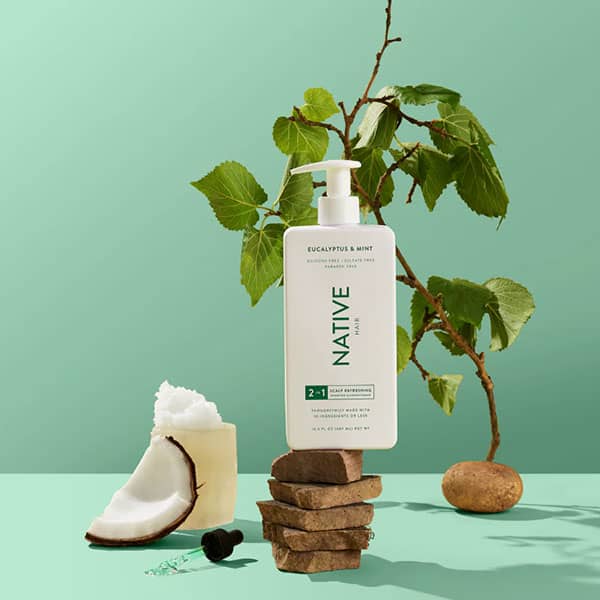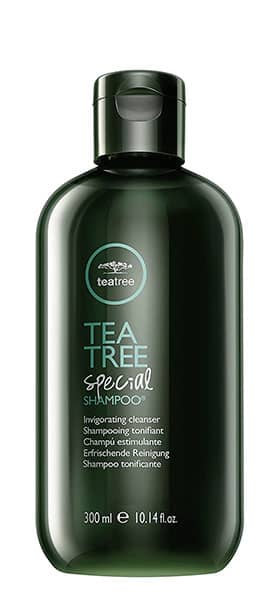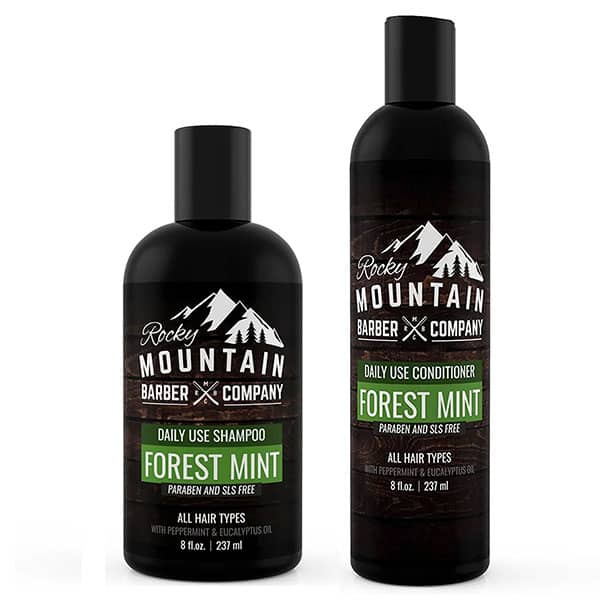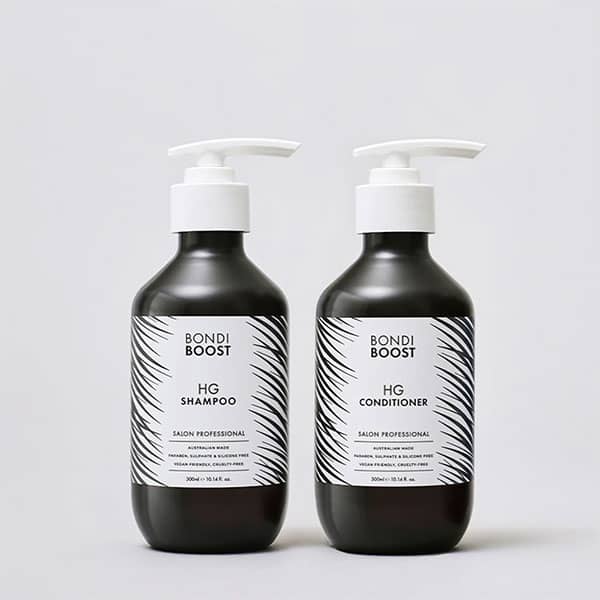We may earn money or products from the companies mentioned in this post at no additional cost to you.
Is Turmeric Good For Hair?
As licensed Cosmetologist in Colorado, and someone whose husband has always struggled with hair loss and thinning, I have tried countless remedies over the years to promote healthy hair growth. Recently, I came across some articles touting turmeric as a potential solution to my problem. Curious about this spice’s supposed benefits for hair, I delved deeper into the research and was surprised by what I found.
Turmeric, a member of the ginger family, has been used in Ayurvedic and Chinese medicine for centuries due to its active ingredient, curcumin. This compound offers anti-neoplastic, antibacterial, anti-oxidative, and anti-inflammatory properties that make it valuable for addressing a variety of health issues. In addition to its traditional culinary uses in India, turmeric has also been found to have numerous benefits for hair care. It is antibacterial, anti-inflammatory, antioxidant, and antifungal, which makes it an effective ingredient for addressing hair loss and scalp problems while promoting new growth. In this article, we will explore whether or not turmeric is good for hair growth based on scientific evidence and offer tips on how best to use it without causing any unwanted side effects.
Key Takeaways
- Turmeric has numerous benefits for hair care, including addressing hair loss and scalp problems while promoting new growth.
- Turmeric’s antibacterial, anti-inflammatory, antioxidant, and antifungal properties make it an effective ingredient in addressing hair and scalp problems.
- Turmeric can promote new hair growth by counteracting the overproduction of DHT and protecting hair follicles from environmental stressors and free radicals.
- Aloe vera, coconut oil, and rosemary oil are popular alternatives to turmeric for promoting healthy hair growth and combating common scalp issues.
Overview and Properties
You already know that turmeric is part of the ginger family and has anti-inflammatory properties due to curcumin, but did you know it can also benefit your hair? Turmeric is antibacterial, anti-inflammatory, antioxidant, and antifungal, which makes it an effective ingredient in addressing hair and scalp problems. If you’re struggling with hair loss or dandruff, incorporating turmeric into your hair care routine may help combat these issues.
In addition to its ability to soothe the scalp and ease flaking and itchiness, turmeric can promote new hair growth by counteracting the overproduction of DHT and protecting hair follicles from environmental stressors and free radicals. You can easily add turmeric powder to your shampoo or opt for a turmeric-based hair oil or mask. However, remember that while turmeric is generally considered safe, it has a strong odor and may cause digestive problems or skin reactions if not used as recommended.
Traditional Uses
In ancient times, this golden spice was revered for its healing properties and used in traditional medicine to treat various ailments. Ayurvedic practitioners have long utilized turmeric as an antiseptic, anti-inflammatory, and antioxidant agent to address skin conditions such as eczema, psoriasis, and acne. In Chinese medicine, it is believed to boost circulation and promote overall health.
Turmeric has also been traditionally used for hair care in India. It is believed to effectively treat scalp issues such as dandruff and itching. The spice’s antibacterial properties help combat hair loss caused by bacterial infections, while its anti-inflammatory action soothes the scalp and eases flaking and itchiness. Additionally, turmeric’s ability to protect hair follicles from environmental stressors makes it an excellent ingredient to add to your hair care routine.
Turmeric Shampoos
- WOW Skin Science Anti-Dandruff Turmeric Shampoo
- Khadi Natural Herbal Ayurvedic Turmeric Shampoo
- The Body Shop Ginger Anti-Dandruff Shampoo with Honey & Turmeric
- Aveda invati advanced™ exfoliating shampoo with turmeric
- Himalaya Herbals Anti-Dandruff Shampoo with Tea Tree and Turmeric
Benefits for Hair
Get ready to experience healthier, revitalized locks with the amazing benefits that adding turmeric to your hair care routine can provide. Turmeric is known for its antibacterial, anti-inflammatory, antioxidant, and antifungal properties, which make it an excellent ingredient for addressing various hair and scalp problems. Its active component, curcumin, has been found to combat hair loss and dandruff while promoting new hair growth and healthy locks.
Turmeric also protects hair follicles from environmental stressors and free radicals while counteracting the overproduction of DHT. This potent spice can be added to your hair care routine through shampoo, hair oil, or mask. However, it’s important to note that turmeric has a strong odor, so test tolerance to smell before applying topically. Additionally, curcumin may cause side effects such as yellow stool and headache if not used as recommended. Therefore, it’s crucial to consume at the recommended dosage and discuss any severe or persistent side effects with a doctor before use.
How to Use
To incorporate turmeric into your hair care routine, consider adding it to your favorite shampoo, hair oil, or mask for a natural way to address common scalp and hair issues. Turmeric can be mixed with other ingredients, such as coconut oil or honey, to create a nourishing hair mask that promotes healthy hair growth and soothes the scalp. Mix the desired amount of turmeric powder with your chosen ingredient and apply it evenly to your scalp and hair. Leave the mixture on for 30 minutes before rinsing thoroughly with warm water.
If you prefer using a shampoo or conditioner, look for products that contain turmeric as an active ingredient. These products are designed to combat dandruff, promote new hair growth, and protect against environmental stressors. Use these products regularly as part of your daily hair care routine for best results. Remember to test any new product containing turmeric on a small patch of skin first to ensure you don’t have an adverse reaction.
Precautions to Consider
Before adding turmeric to your hair care routine, it is vital to be aware of precautions and potential side effects that may occur. While turmeric offers numerous benefits for hair growth and scalp health, it also has a strong odor. It can cause digestive problems or skin reactions if not used as recommended. Test your tolerance for the smell before applying topically, and consume at the recommended dosage.
Additionally, curcumin – the active ingredient in turmeric – may cause side effects such as yellow stool and headaches. People with allergies to Curcuma genus plants are more likely to experience side effects from using turmeric. If you experience severe or persistent side effects after using turmeric on your hair or scalp, it is best to discuss it with your doctor. Overall, while considered a safe ingredient for hair care, it is essential to use caution when incorporating turmeric into your routine and follow instructions carefully.
Side Effects of Curcumin
Although generally considered safe, it is important to be aware of the potential side effects of curcumin when incorporating this powerful ingredient into your hair care routine. Some people may experience yellow stool or headache after consuming curcumin supplements or applying turmeric topically. Additionally, individuals with allergies to Curcuma genus plants are more likely to experience adverse reactions.
To avoid these side effects, always use turmeric as directed and in recommended dosages. It is also important to test your tolerance for the smell before applying it topically. If you experience severe or persistent side effects, consult with your doctor immediately. By taking these precautions and using turmeric responsibly, you can harness its many benefits for healthy hair growth and a nourished scalp.
Final & Other Recommendations
Now that we have discussed the potential side effects of curcumin let’s explore some alternative hair care options. While turmeric can be a great addition to your hair care routine, it may not work for everyone or may cause unwanted side effects. Luckily, many other natural ingredients can promote healthy hair growth and combat common scalp issues.
Some popular alternatives include rosemary oil, peppermint oil, tea tree oil, and aloe vera. Rosemary oil is known for its ability to stimulate hair growth and improve circulation in the scalp. Peppermint oil has a cooling effect on the scalp and can help soothe irritation and inflammation. Tea tree oil is antifungal and antibacterial, making it effective at treating dandruff and other scalp issues. Aloe vera contains enzymes that promote healthy hair growth while also moisturizing the scalp to prevent flakiness and itchiness. By exploring these options and finding what works best for your specific needs, you can create a personalized hair care routine that promotes strong, healthy locks without any unwanted side effects.
Looking for the best natural ingredients to add to your hair care routine? Check out these final recommendations! While turmeric offers numerous benefits for hair growth and scalp health, it’s important to remember that it’s not the only ingredient out there. If you’re looking for alternative options, consider incorporating ingredients like aloe vera, coconut oil, or rosemary into your hair care routine.
Aloe vera can soothe an irritated scalp and help promote healthy hair growth. Coconut oil is excellent for nourishing dry or damaged hair and can even help prevent breakage. Rosemary has been shown to stimulate hair growth and improve circulation in the scalp. Whichever ingredient you choose, make sure to do your research and use it as directed to avoid any potential side effects.
Bottom Line: Is Turmeric good for hair?
Turmeric is known for its anti-inflammatory and antioxidant properties, which can benefit the scalp and hair health. It can help to strengthen hair strands, reduce dandruff, and promote hair growth. Turmeric also has natural antiseptic properties that can help to prevent scalp infections. However, it is always recommended to consult with a dermatologist or a hair specialist before using any new product or ingredient on your hair.

